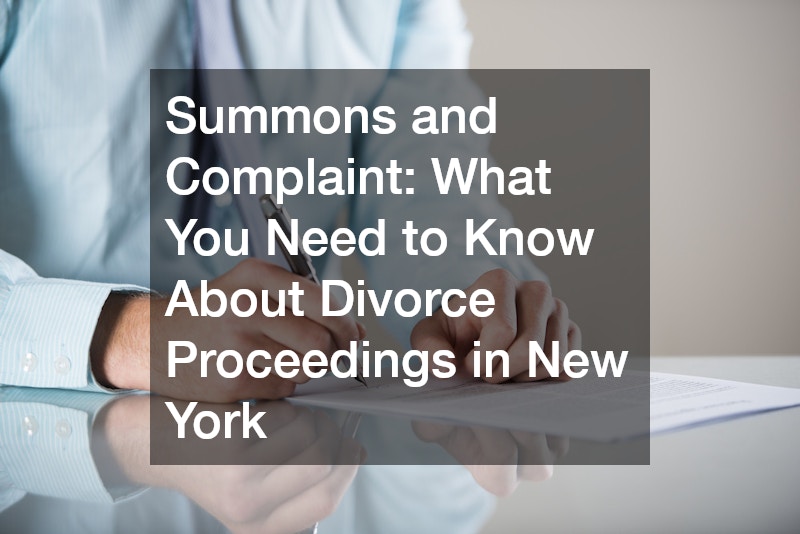
When starting a divorce in New York, the process officially begins with the issuance of a summons and complaint. These documents serve as the formal initiation of the lawsuit and are crucial in setting the stage for the legal proceedings that ensue. Understanding their purpose and implications can help ease the stress of this challenging time.
The Role of the Summons and Complaint
A summons is the primary document used to commence a lawsuit in New York State. In divorce cases, it is typically accompanied by a complaint, which outlines the specific claims and relief sought by the initiating party.
Common relief requests in a divorce include custody and visitation rights, spousal support, child support, health insurance, and equitable distribution of assets.
What to Expect
Receiving a summons and complaint can be overwhelming, but it’s essential to recognize that these documents are merely the beginning of the legal process. They outline preliminary demands and do not guarantee any immediate outcomes. It’s important to approach these documents with a clear understanding that they are the starting point for negotiations and legal discussions, not final determinations.
Responding to the Documents
Upon receiving a summons and complaint, you have the opportunity to respond by filing an answer. This response allows you to address the claims made and propose your own requests for relief. It is also possible to include a counterclaim if you seek additional relief or wish to contest certain aspects of the original complaint.
To ensure the documents are properly served and that you have adequate time to respond, you may want to consider the services of preferred process servers. They ensure that the summons and complaint are delivered accurately and on time, helping to facilitate a smooth and timely legal process.
In Summary
While the summons and complaint mark the start of your divorce proceedings, they are just initial steps in a much larger process. By understanding their role and preparing your response, you can handle the early stages of divorce with more confidence and clarity.
.




